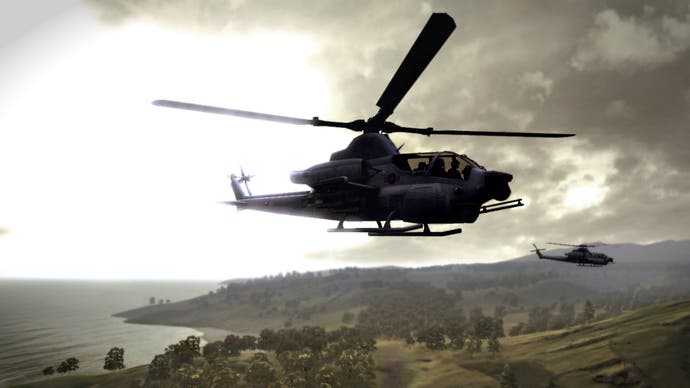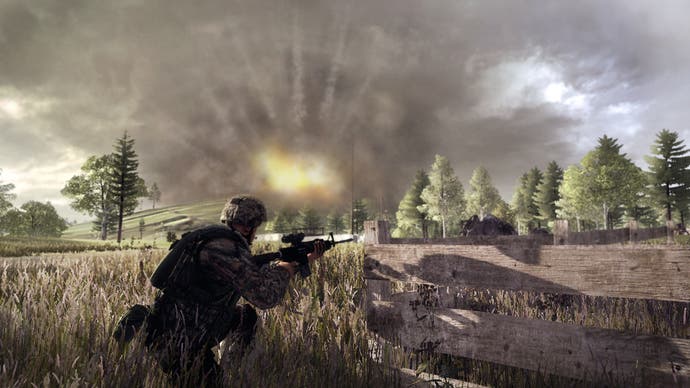Operation Flashpoint 2: Dragon Rising
We chat with lead AI designer Clive Lindop.
After so many years in development hell, it's refreshing to see one of gaming's great enigmas finally come out of hiding. Due for release sometime in spring next year, Codemasters has decided that the time is now right to start taking the wraps off Operation Flashpoint 2 - arguably the most ambitious military shooter simulation to date.
The game's lead AI designer and senior designer, Clive Lindop, recently presented the game to the press behind closed doors and briefly showed it running in real time. (Read last week's preview to find out what we thought of it.) Afterwards, we had time to chat about several other elements of the game, and grilled Codemasters' military AI guru about the AI, the tech, the save system and how they're going to implement that perennial bugbear - a health system.
Spring 2009 on PC, 360 and PS3.
It's always been a relatively convenient excuse for the games industry to look at consoles and go, 'Ah, they make games more stupid.' It's simply not true, if you design intelligently and develop your technology, it's the only way you could have built OFP2.

Rather than taking a pre-existing engine and updating it to be "next-gen" we've had to build our own technology, because you need to be able to start from streaming the most basic of assets. So that when you're looking at, say, the console user's experience versus the PC user's experience, if you design the gameplay and mechanics the right way they will fundamentally have the same experience.
One of the things in OFP2 which primarily achieves that is the AI and the UI. The original OFP had a really unhelpful UI. You had 12 guys on F keys who you couldn't group properly. You can still have a complex command system and go to a map and lay out your own plan that can last the whole mission.
If you don't want to do that and just want to give out quick orders... Say you're in the middle of a firefight, you're pinned down and you want someone to flank right. You can just look at a piece of scenery, select the guy you want to talk to - because they're now grouped in proper echelons like fireteam squad - you know, "Go!" and they'll do it. The reason for that, of course, is because the AI can interpret this, such as how it's going to flank, what terrain it's going to use, what cover it's going to use.

No, the player doesn't have to micro-manage everything the AI does, but if you want to micro-manage, you can. If you don't want to, you don't have to. It's possible for the player to never give an order, ever, in the entire campaign because the AI will just do it itself.
It'll follow you if you're in charge, but if you don't do anything, it'll find its own cover, its own target, he has his own simulated morale and expression. He could even abandon you. If he thinks you're a nutter because you keep running at machine gun posts, he'll stop following you. He'll tell you that. He'll tell you, 'I think you're losing it', and then the next thing you know you're on your own because they've left you.
You don't want a situation where you go, actually, these guys are a pain in the arse, not only are they useless, but they keep getting killed, so I'm going to leave them here and come back for them at the end of the mission. We want them to almost be better than you - good soldiers that you can rely on.








